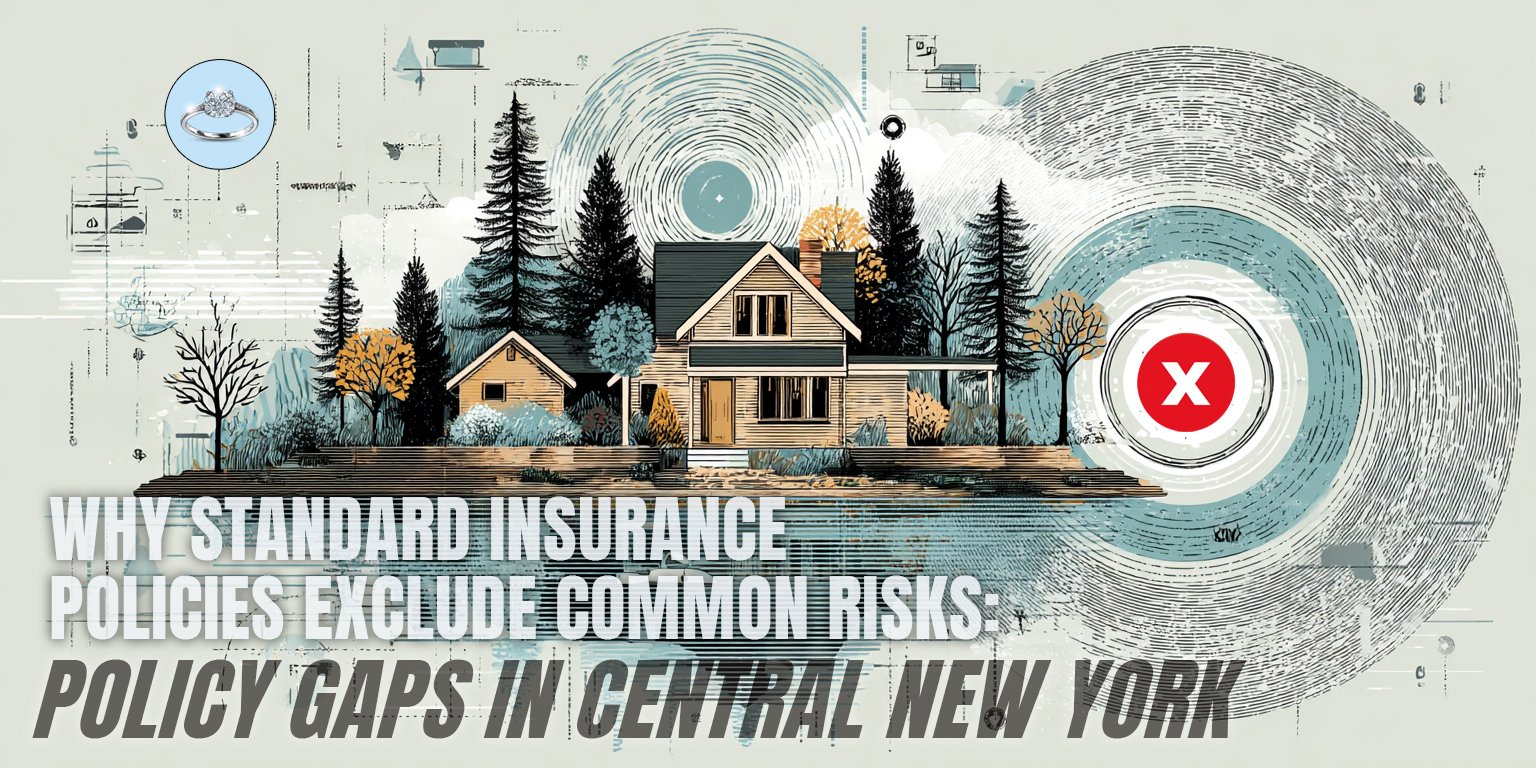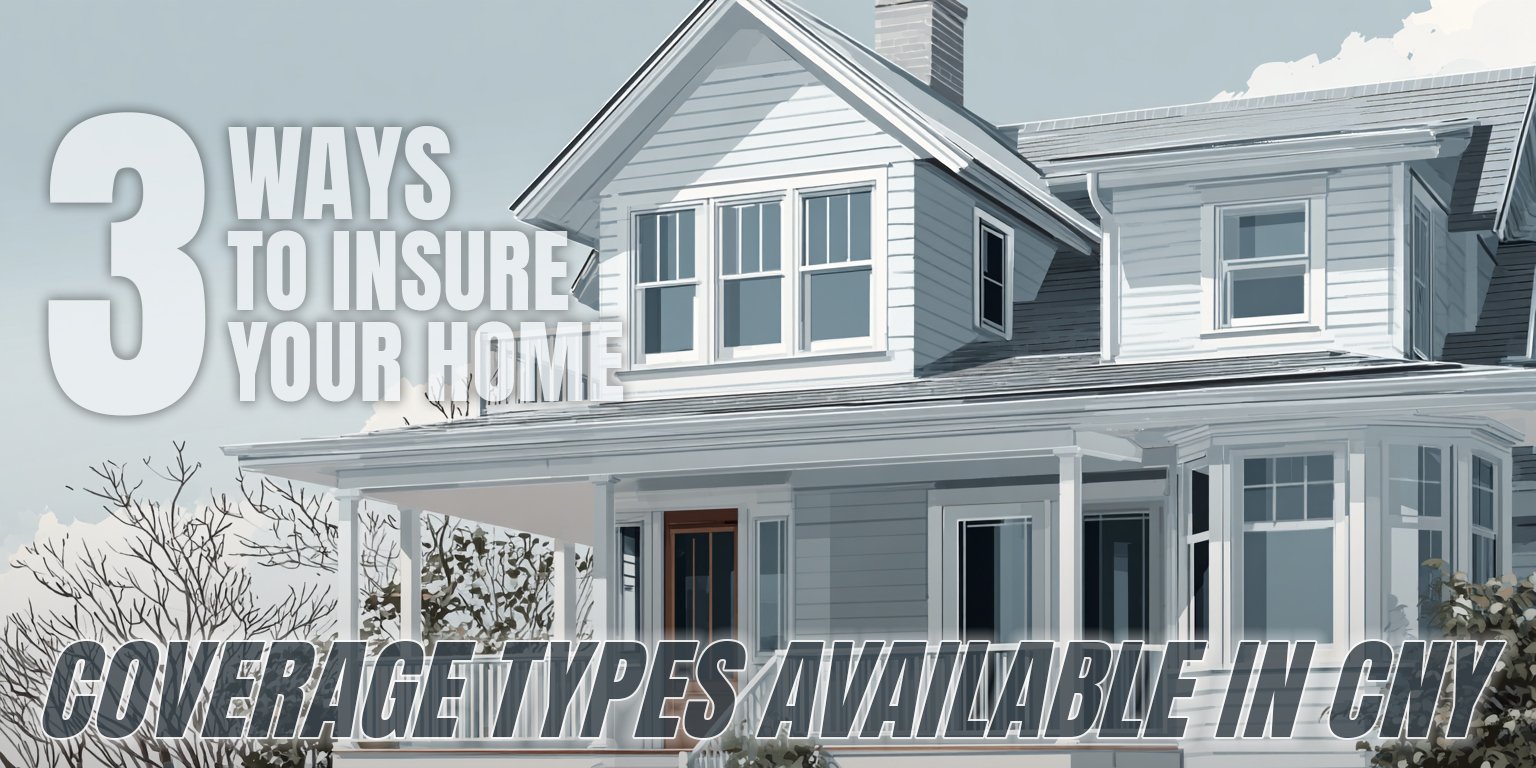Your insurance claim has been settled, and now you're ready to begin repairs on your Central New York home. But choosing a suitable contractor and managing the repair process brings new challenges.
Storm chasers knock on your door promising quick fixes, while established local contractors have waiting lists stretching weeks. The decisions you make during this phase can affect both the quality of your repairs and your relationship with your insurance carrier.
At the Horan insurance agency, we assist Central New York property owners with information about the post-claim repair process, including guidance on working with contractors and managing insurance settlements. As an independent agency working with multiple carriers, we understand how contractor relationships affect claim outcomes and what property owners should consider when selecting repair professionals.
In this article, we'll explore how to select qualified contractors in Central New York, manage insurance payments and repair timelines, and handle common issues that arise during the repair process.
Understanding Insurance Carrier Preferred Contractor Programs in Central New York
Many insurance carriers offer preferred contractor programs that can streamline your repair process. These programs include pre-screened contractors who work directly with insurance companies on damage assessments and repairs.
Preferred contractor benefits include guaranteed work quality, established pricing agreements with carriers, and direct billing arrangements that simplify payment processes. If your Syracuse-area home needs roof repairs, a preferred contractor might begin work immediately after your claim approval without requiring upfront payment from you.
However, using preferred contractors isn't mandatory. New York insurance law allows you to select any qualified contractor for your repairs. Some property owners in CNY prefer working with contractors they've used previously or those recommended by neighbors who've had similar work completed.
When carriers suggest preferred contractors, ask about their qualifications, warranty provisions, and how disputes get resolved if problems arise. Understanding these details helps you make informed decisions about whether preferred contractor programs align with your repair requirements.
Evaluating Contractor Credentials and Local Experience in CNY
Central New York's climate and building codes create specific requirements that affect contractor selection. Qualified contractors understand local conditions and have experience working with materials that perform well in our region.
References from recent projects provide insight into work quality and customer satisfaction. Ask potential contractors for examples of recent storm damage repairs in Liverpool, Cicero, or other nearby communities. Speaking with previous customers about their experiences can reveal important information about communication, timeliness, and problem resolution.
Insurance coverage confirmation through certificate requests ensures contractors maintain appropriate coverage for your project. If a contractor's worker is injured on your property and the contractor lacks workers compensation coverage, you could face liability for medical expenses and lost wages. Learn what a certificate of insurance is.
Local experience matters significantly when dealing with CNY weather-related repairs. Contractors familiar with ice dam prevention, proper insulation techniques, and wind-resistant installation methods provide value beyond basic repair services.
Managing Insurance Payments and Contractor Communication
Insurance claim settlements often involve multiple payments and specific requirements that affect how you pay contractors. Understanding these processes prevents complications that can delay your repairs.
Initial claim payments typically cover actual cash value, with additional payments released when repairs are completed. Your carrier might issue a check for $8,000 immediately and hold $3,000 in recoverable depreciation until you submit completion documentation and receipts.
Contractor payment schedules should align with insurance payment structures. Reputable contractors understand insurance payment processes and can work with payment schedules that match carrier requirements. Be cautious of contractors demanding full payment upfront, as this creates financial risks if problems arise during repairs.
Endorsement and mortgage holder requirements affect how insurance payments are processed. If your Liverpool home has a mortgage, claim checks may require endorsements from both you and your lender. Contractors should understand these requirements and accommodate the additional processing time involved.
Communication coordination between contractors and adjusters helps resolve questions about repair scopes and additional damage discoveries. When contractors identify additional damage during repairs, proper documentation and communication with your adjuster ensures appropriate coverage consideration.
Handling Change Orders and Additional Damage Discoveries
Construction projects frequently reveal additional damage not visible during initial assessments. How you handle these situations affects both repair quality and insurance coverage.
Documentation requirements for additional damage include photographs, detailed descriptions, and professional assessments when structural issues are discovered. If your contractor finds water damage behind walls during siding replacement, proper documentation supports supplemental claims with your carrier.
Approval processes for additional work should involve communication with your insurance adjuster before authorizing expensive changes. Some carriers require pre-approval for work exceeding certain dollar amounts, while others allow reasonable additional work with after-the-fact documentation.
Change order management includes written agreements about additional costs, timeline impacts, and responsibility for payment if insurance doesn't cover newly discovered damage. Clear agreements prevent disputes and ensure all parties understand their obligations.
Supplemental claim filing may be necessary when additional damage exceeds original estimates. Your contractor can assist with this process by providing detailed documentation and professional opinions about damage causes and necessary repairs.
Quality Control and Project Completion Requirements
Maintaining quality standards throughout your repair project requires active involvement and understanding of completion requirements.

Inspection schedules should include multiple checkpoints during construction, not just final completion reviews. For roofing projects in Central New York, inspections after decking replacement, underlayment installation, and shingle application help identify problems before they become costly corrections.
Building permit compliance ensures repairs meet local code requirements. Most municipalities in Central New York require permits for significant repairs, and contractors should handle permit applications and arrange necessary inspections.
Warranty documentation from both contractors and material manufacturers provides coverage for future problems. Understanding warranty terms, duration, and claim procedures helps address issues that might arise after project completion.
Final payment coordination with insurance carriers often requires completion certificates, final inspection reports, and lien waivers from contractors. These documents confirm work completion and clear the way for final insurance payments.
Safeguarding Yourself from Contractor Fraud and Poor Workmanship
Unfortunately, major weather events often attract unscrupulous contractors who target property owners dealing with insurance claims. Recognizing warning signs helps you avoid costly mistakes.
Red flags include door-to-door solicitations with high-pressure sales tactics, requests for large upfront payments, and contractors who can't provide proof of insurance. Storm chasers often target neighborhoods immediately after severe weather events, promising quick repairs and insurance expertise.
Payment protection involves making payments only after work completion and according to agreed schedules. Never pay contractors in cash or provide full payment before work begins. Legitimate contractors understand standard payment practices and won't pressure you for immediate full payment.
Lien protection requires understanding New York's mechanic's lien laws and ensuring contractors provide proper documentation when final payments are made. If contractors don't pay their suppliers or subcontractors, those parties might file liens against your property even if you've paid the contractor.
Contract documentation should include detailed work descriptions, material specifications, completion timelines, and dispute resolution procedures. Written agreements provide legal safeguards and clear expectations for all parties involved in your repair project.
Building Successful Contractor Relationships for Future Projects
Establishing positive relationships with qualified contractors benefits property owners beyond immediate repair needs. These relationships provide value for future maintenance and improvement projects.
Communication expectations include regular progress updates, prompt responses to questions, and professional behavior throughout the project. Contractors who communicate effectively during insurance repairs often provide reliable service for future projects.
Maintenance guidance from experienced contractors helps extend repair longevity and prevent future problems. A qualified roofer might provide specific recommendations for gutter cleaning schedules or ice dam prevention measures appropriate for your Liverpool home's design.
Reference sharing within your community helps neighbors find qualified contractors while supporting local businesses that provide quality service. Property owners who've had positive experiences often become valuable references for contractors seeking new customers.
Long-term relationships with reliable contractors provide advantages when future repairs or improvements are needed. Contractors familiar with your property's history and construction details can provide more accurate estimates and better service for ongoing needs.






























